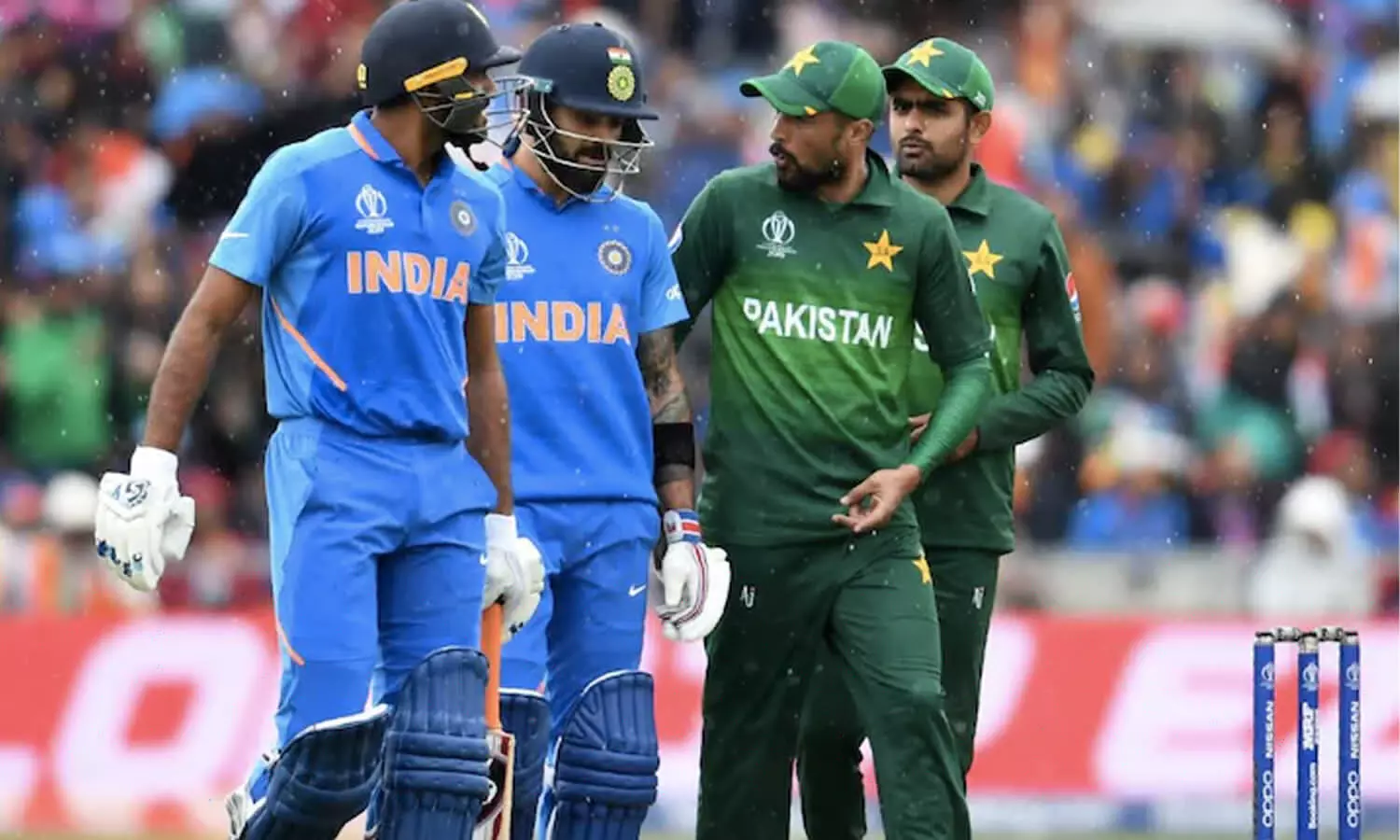Cricket
India vs Pakistan: Enmity often overpowers the joy of cricket
As the T-20 World Cup matches have started, the atmosphere is charging up with the excitement for the India-Pakistan match on October 24. However, debates have already started, whether India should play Pakistan.

India vs Pakistan (Source: ICC)
As the T-20 World Cup matches have started, the atmosphere is charging up with the excitement for the India-Pakistan match on October 24. The official broadcaster of the tournament in India, Star Sports, has released its conventional promo Mauka, Mauka and TV channels have started debating whether India should play cricket with Pakistan or not. Recent killings of civilians in Kashmir by militants have fueled the controversy. Sports-loving people are waiting to see an enthralling encounter between arch-rivals, but for many people, it is only a matter of national pride. Different political parties and leaders are also expressing their views on the issues and further fuelling the controversy.
The cricket fans across the border believe that the sport could become the synthesis of two arch-rival cricketing nations if we take nationalism out of it, and they fondly remember friendly and courteous acts by cricket-loving people from both sides of the border during India-Pak matches. Many people see cricket as a common contour and a tool of a harmonious relationship between traditional rivals, on and off the field. They want a normal functional cricket relationship between both of the countries, as apart from the cricketing moments, it also provides a few moments of dialogue among them.
The hostile political relationships overshadowed the cricketing culture of both countries, but cricket was never affected so badly in the past. In fact, cricket was used as an apparatus of dialogue, and terms like 'cricket diplomacy' were prevalent. Pakistani cricketers were also part of the first session of the Indian Premier League. Despite the tense relations, India and Pakistan have jointly organised World Cup twice in 1987 and 1996. (Pakistan was also originally a joint host of World Cup-2011, but later tournament moved out of Pakistan due to security concerns.) The aftermath of the Mumbai terror attacks in 2008, they were withdrawn from IPL and bilateral cricket between both countries was abandoned. Now, India and Pakistan play with each other only in the ICC events. However, there are whispers of some dialogue between officials of the BCCI and PCB and resuming cricketing relationships between both of the countries in the near future.
Obviously, sports can bring people together from different walks of life and nation. People from different countries love and admire their sports idols across the world, but at the same time, sports also carries the feeling of nationalism, and cricket is no exception. On the one side, we hope for good cricket between India-Pakistan and courteous friendship between cricket fans with sports spirit; on the other side, there are apprehensions of a jingoist crowd who don't see cricket beyond nationalism and don't appreciate sport spirit at all. Local pages of the regional newspapers bear the testimony of these facts after the matches. In the 2011 World Cup, the day after the India-Pakistan match, news of clashes and attacks on the people and students, especially from Kashmir, on the pretext of supporting the Pakistani cricket team had surfaced.
In those days, I was pursuing my Ph.D. from a premier institution in India, where the presence of students and teachers from all parts of the world was a common thing. But handfuls of students started abusing and physically attacking the students who were cheering for good cricketing moments by non-Indian cricketers. Along with Indian students, overseas students were also on the receiving end of abuses and attacks. However, the situation in the particular university did not go out of hand as a large number of the students and teachers stood up with the sporting spirit, but news of physical attacks and abuses on a mere assumption of cheering Pakistani cricketers were reported from several cities of the country. The enmity between both the cricketing countries often overpowers the joy of the sport.
These attacks were obviously motivated by cricket nationalism and communalism. For them, cricket is a symbol of nationalism and a match is no less than a war, where no other team can be allowed to be appreciated. Doing so is synonyms to the anti-national activities, inviting mob justice. Thus, an Indo-Pak match brings joy and worries together. The media coverage of the match from a nationalistic point of view plays a pivotal role in creating such an atmosphere, where a match is defined as war and players as its soldiers. For example, the India-Pakistan match in the ODI World Cup 1999 during the Kargil conflict was declared as a war by a few Indian media groups. Nationalistic politics is harming the essence of sports spirit in India and Pakistan.
The introduction of the Indian Premier League shattered the exclusivist sentiment of cricket nationalism to some extent, where overseas cricketers play for an Indian franchise against another Indian franchise. Initially, there was a dilemma in the mind of Indian cricket fans but now, after more than a decade, the dilemma has gradually vanished, at least in the IPL. However, the old loyalties did not wither away completely. In this era of contradictions, Indian cricket lovers are also managing a balance between nationalism in international cricket and internationalism in the IPL. But the way in which any sport represents the triumph of hope and perseverance over fear, let's hope that the love of cricket would prevail over sectarianism and hate and spread love, hope, and cheers amongst people transcending across the borders, both in and off the field.
About the author
The author is an Assistant Professor of Hindi/Media at the Jamia Millia Islamia.
